Addition & Subtraction Worksheets Activities With Answers for Ages 3-5
8 filtered results
-
From - To
Explore our engaging Addition and Subtraction Worksheets tailored for children aged 3-5! Designed to foster early math skills, these fun activities help kids learn to add and subtract through colorful illustrations and simple problems. Each worksheet promotes interactive learning, allowing toddlers to grasp foundational concepts in an enjoyable manner. Teachers and parents can easily download and print the worksheets, complete with answer keys for quick reference. Support your child's cognitive growth and mathematical confidence with these creative activities that make learning a delightful experience! Visit our website for a wide variety of worksheets that cater to young learners' needs.
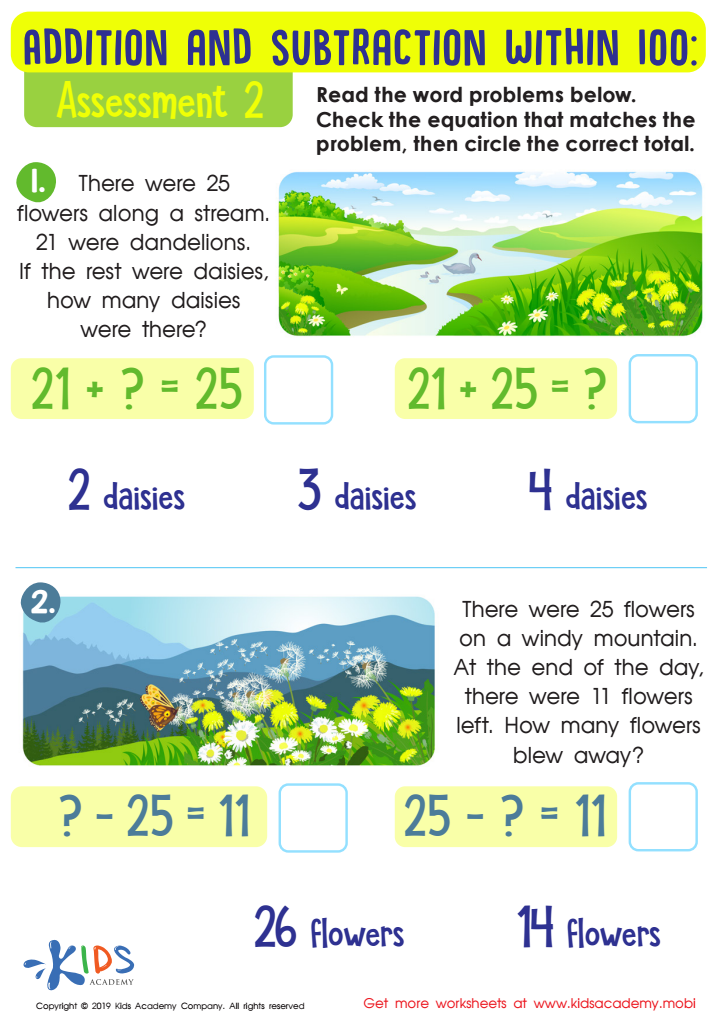

Assessment 2 Math Worksheet
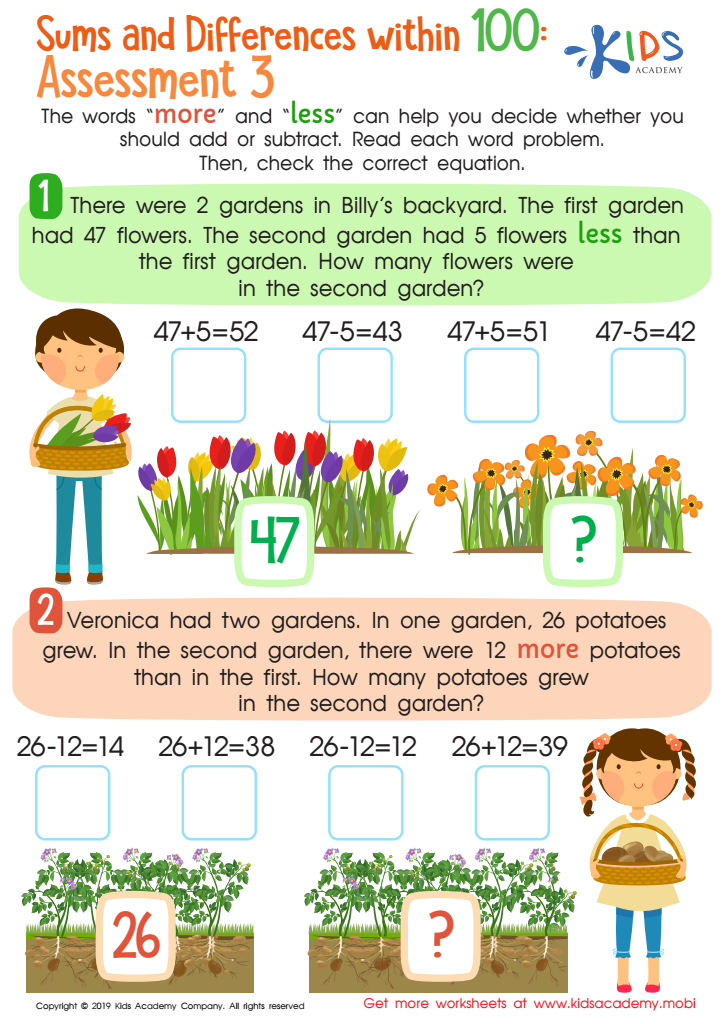

Sums and Differences Within 1 - Assessment 1 Worksheet
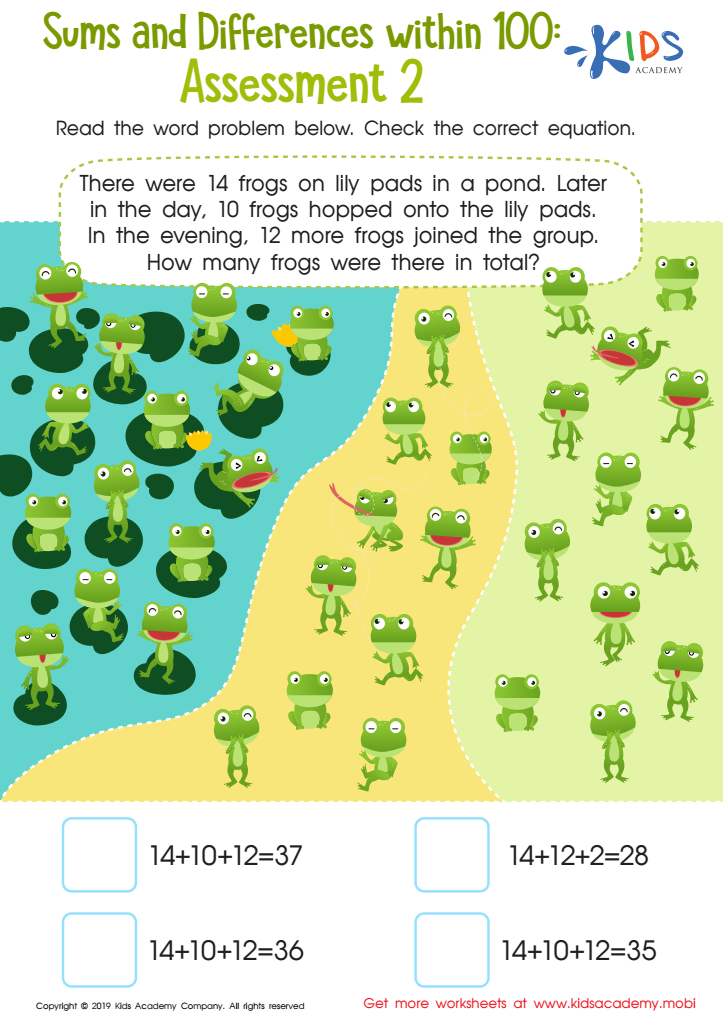

Sums and Differences Within 1 - Assessment 2 Worksheet
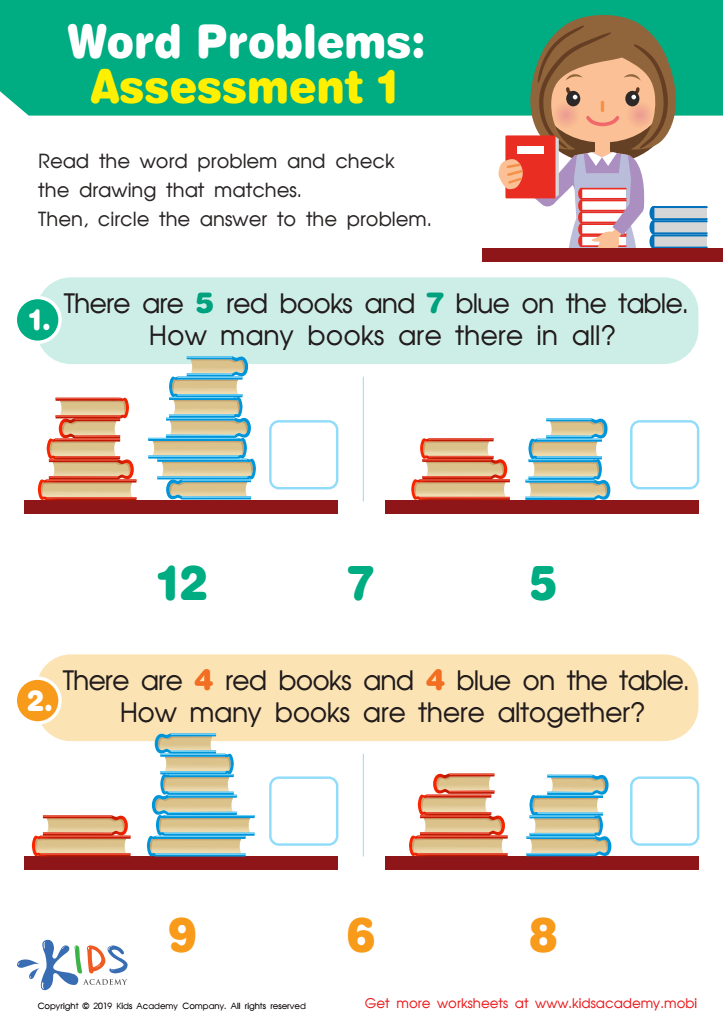

Word Problems: Assessment 1 Worksheet
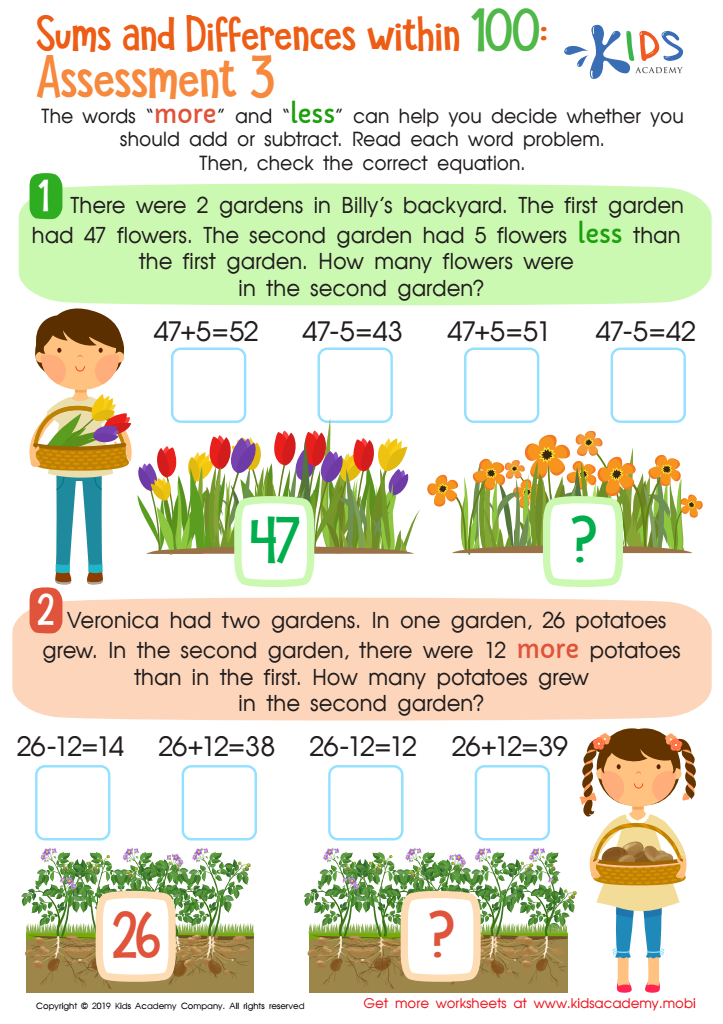

Sums and Differences Within 1 - Assessment 3 Worksheet
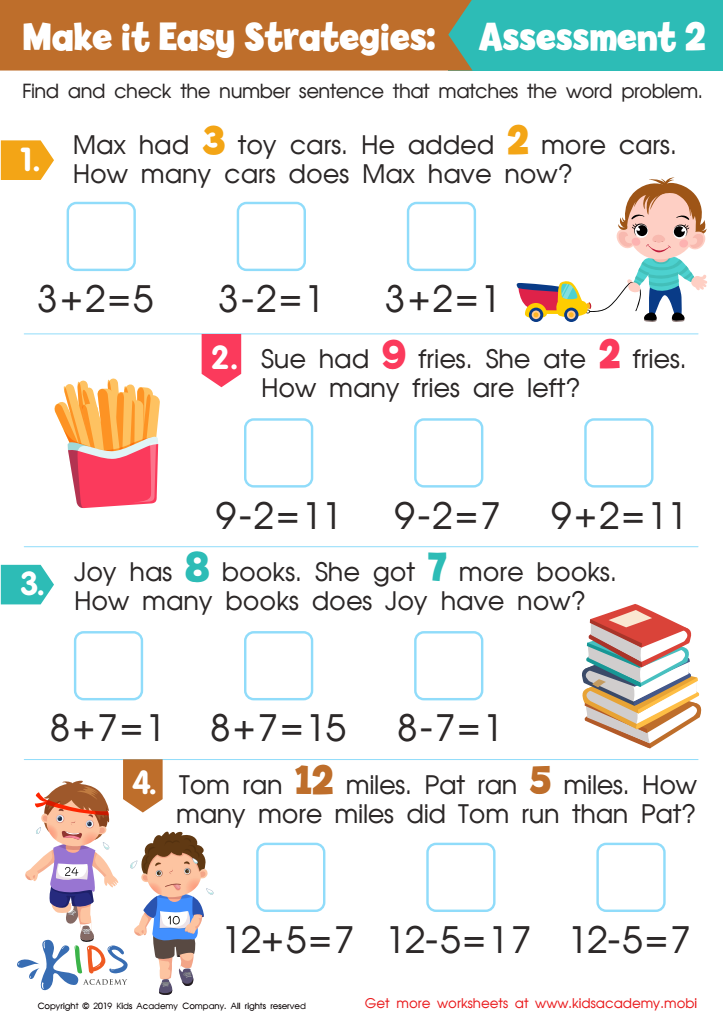

Make it Easy Strategies: Assessment 2 Worksheet


Word Problems: Assessment 2 Worksheet
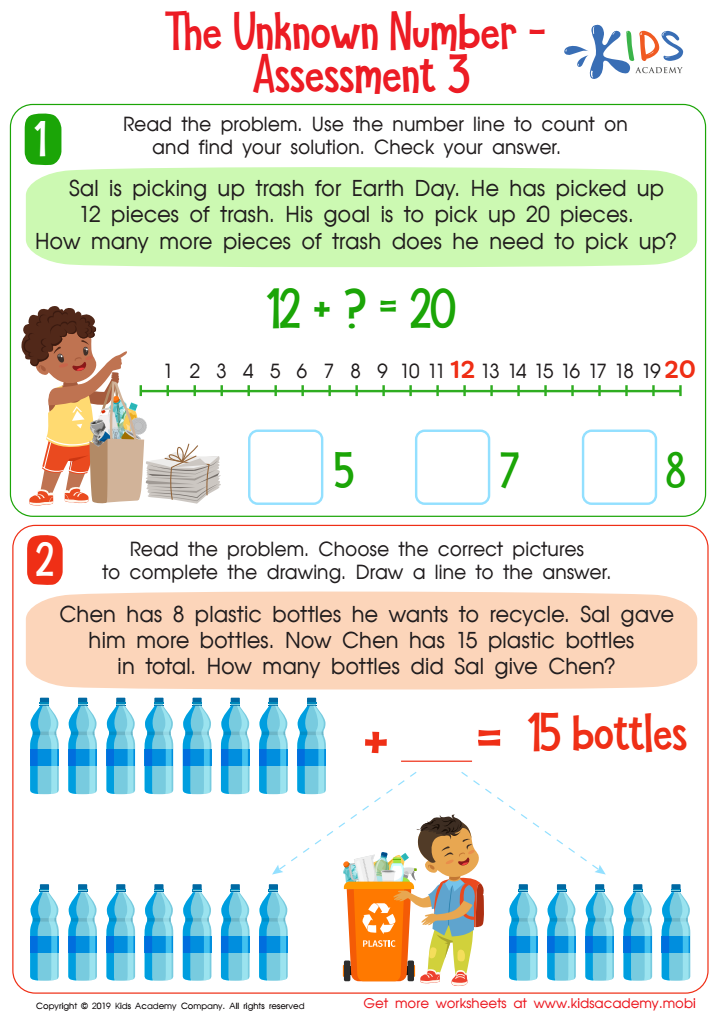

The Unknown Number - Assessment 3 Worksheet
Parents and teachers should prioritize addition and subtraction activities for children aged 3-5 because early mathematics skills lay the foundation for future academic success. Engaging preschoolers in these activities helps them develop essential cognitive skills, including problem-solving and critical thinking. Through playful and interactive games, children enhance their understanding of numbers, quantities, and the relationships between them.
Moreover, these activities promote social interaction and cooperative learning, fostering communication skills among peers. They can be personalized to cater to each child's developmental level, ensuring that every child stays motivated and engaged. Incorporating visual aids, hands-on manipulatives, and real-world scenarios makes learning enjoyable and relatable, which deepens comprehension.
Furthermore, early exposure to addition and subtraction cultivates numerical fluency, making it easier for children to grasp more complex mathematical concepts in later years. It also builds their confidence, as they learn to tackle challenges and celebrate small successes.
Overall, addition and subtraction activities not only support mathematics learning but also contribute to a child's overall development, including language, social skills, and emotional well-being. Investing time in these early learning experiences equips children with critical skills necessary for lifelong learning.
 Assign to My Students
Assign to My Students














